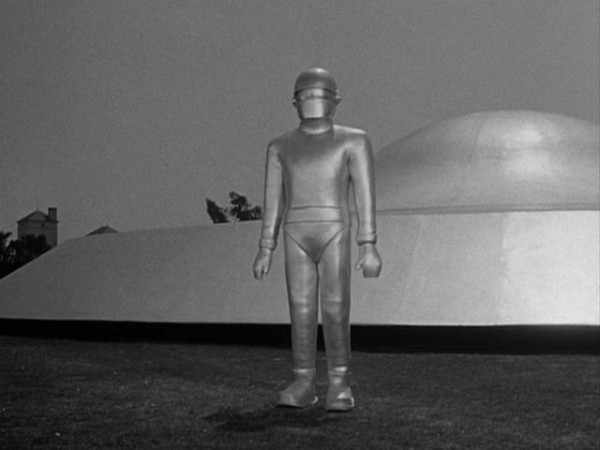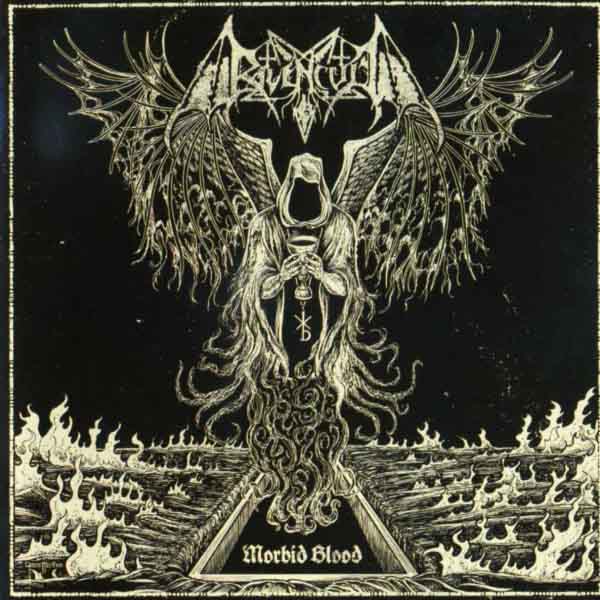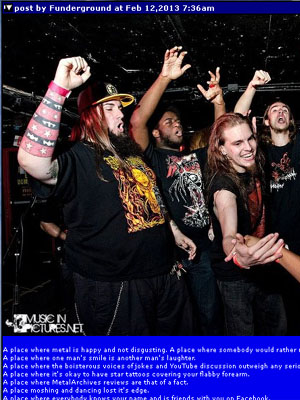
Blue skied days make me think of aliens landing amongst us like in the old science fiction films. Except this time, the aliens are disappointed in what they find. “We have analyzed your transmissions,” the vocoded digi-translator says. “We are hoping to contact the people of Aurelius, Plato, Nietzsche and the first Morbid Angel album.”
Sadly there is no one here who can help them. The old Romans are dead, the ancient Greeks long gone, even the days when philosophers wrote about real topics are over, and Morbid Angel have ventured on to different goals and styles. If the aliens came looking for old school death metal, they’d find themselves presented with over a million options, very few of which resembled the glory of what once was.
This leads us to the interesting question: what causes some human endeavor, whether a civilization or a culture or death metal, to collapse? Nietzsche believed the answer to be nihilism; Joseph Tainter thinks it is when groups find diminishing marginal returns in self-organization; Aurelius saw a failure of spirit as the cause. When I was less experienced, I would have agreed with Nietzsche or Tainter that an internal/external source was the cause; the more I’ve seen, the closer I veer toward Aurelius’ view which is that things die when their spirit dies.
In metal, we’ve had a great spiritual death for quite a long time now. Death metal and black metal produced a huge backlog of technique, imagery, creativity and complexity between 1984 and 1994, but then pretty much faded away. In their place first came imitators, then metalcore, and now the emo/indie/gaze crowd of “post-metal” types who are making the same music that was popular back in the late 1980s. History has reversed itself as it always does when collapse comes to town.
Erik Danielsson of erstwhile black metal band and now happy melodic heavy metal band Watain offered his own vision of how this inversion occurs:
I think that throughout the course of history, there have always been very few bands that have been able to live up to my standards, at least of black metal… Then there are thousands and thousands of misrepresentations and misconceptions of it. But true and genuine black metal is always something that will always be a minority in the music scene. A small minority even.
Then there’s all these people that kind of want to… It’s just like punk, you know? You have a few real punk bands, and you have a thousand bands that try to do the same thing, but fail because they don’t have the right spirit and they don’t really believe in it. But at the same time, it fascinates a lot of people, because it is an extreme way of expression, and it is controversial, and it’s therefore also popular and people are fascinated by it.
That’s why it’s also so often, like with other forms of extreme art, whatever it may be, that’s why it’s also so often misused, and just even commercialised, just for the sake of that, horror sells. And extreme metal sells, controversy sells, and that’s why there’s so many charlatans in this kind of music.
He makes a good point but it’s not the whole story. At some point, the genre was stronger and had a higher ratio of actual black metal to imitators. What is an imitator? Someone who adopts the surface appearance of some other thing without understanding its spirit, inner structure, values or motivations. Why do imitators do it? For the social value; that’s all imitation can deliver. If you imitate something, you can sell it, achieve popularity, or even just have some rationalization for your lifestyle and a way to spend your time that you feel doesn’t make you look like a complete l00zer to your friends.
This makes the original ideals of black metal look smarter than they seemed at the same. “No more, no core, no fun and no trends” is an anti-social statement, meaning that it is designed to block the passage of metal into a social movement. As discussed in Until the Light Takes Us, the decay of meaning is inevitable once power passes from the innovators to the art shop displays, poseurs, political types and record label tyrants.
Luckily, there’s also good news. hybrid indie/metal band Twilight is calling it quits:
Black metal supergroup Twilight welcomed a new member in the middle of 2012: Thurston Moore. “We’re not coming together to make music,” Moore said then of the group. “We’re joining forces to destroy all rational thought.”
Unfortunately, the band itself has also imploded. With news of their new album—III: Beneath Trident’s Tomb, out March 18 in North American and March 17 in Europe through Century Media—comes the announcement that Twilight has broken up. The album will be their last.
I will never be happy for anything that inconveniences Imperial of Krieg in any way, as he carried the black metal flag at a time when the USBM underground had declared itself dead fetus and put up the banner of failure. I also have no enmity for Thurston Moore, who was quite a gregarious and interesting fellow when I met him, or any of the other musicians in Twilight. They’re just trying to have careers. However, they were also symbolic of the downfall of underground metal in that they symbolized its acceptance by the indie rock hierarchy.
The thing about rebels is that they either fail and are destroyed in anonymity, or they become the new Establishment. Since most people love a chance to believe that their problems are caused by oppression, not their own poor life choices, revolutions are very popular; just about everyone loves one, except the cynical and flatulent elderly. Thus as a revolutionary you have a better than average chance but, if you succeed, you live to become that against which new generations revolt. First country, blues, jazz and rock were a revolution against established music, then punk was a revolution against popular music. Then indie was a revolution against punk.
Black metal, like heavy metal before it, was a revolution against the mentality of revolution. It was “heavy” in that instead of promising flowers, love and peace — all appearances, all social things — it promised darkness, warfare, conflict and predation. Metal has always been the music that says our problems cannot be solved by appearances and must be addressed by dealing with reality itself, which is the one thing that most people never want to do.
The message of metal is never initially popular. What is popular is the perception of metalheads being “outside” the social system, and thus able to perceive a truth and enjoy a freedom that those inside cannot. This makes those inside want to emulate the outsiders, but they do so only in appearance, resulting in them making imitations that have the spirit, values, goals and internal structure of the inside. Thus, the independent truth is dragged down into a morass of conformity and the same failed thinking that it tried to escape.
6 CommentsTags: Black Metal, funderground, krieg, underground metal, watain


 A tension has been simmering under the surface in metal for the better part of a decade now and shows no signs of calming down. It concerns the division of metal into old and new.
A tension has been simmering under the surface in metal for the better part of a decade now and shows no signs of calming down. It concerns the division of metal into old and new.
